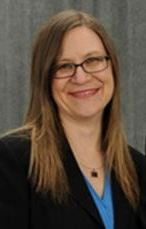 Interview by Laurie Casey
Interview by Laurie Casey
In January, Oak Park, IL's Percy Julian Middle School successfully launched a "zero waste" lunch program for its sixth graders. For several weeks, school administrators, custodians, community members and students helped more than 300 sixth graders decide where to place their lunch discards among three bins (recycle, compost, landfill). A small group of sixth grade volunteers are now answering any lingering questions from their classmates about what goes where. The Julian implementation team is awaiting the results of an audit to find out how much waste the program is diverting from the landfill, and they expect the school will have lower waste hauling bills.
"This effort is a powerful example of sustainable community development in action," says Oak Park resident Mindy Agnew, a key parent volunteer who helped plan the roll-out. "The district, the custodians, the parents...we wouldn't be able to do this without their help. And what better audience than the best change agents I've come across, our students?"
Agnew, chairperson of Lincoln Elementary School's green committee and a member of an Oak Park parent collaborative called the Zero Waste Schools Group, is a passionate sustainability champion.
"The path to zero waste is not difficult. It's a different way of taking out the trash. It's that simple," says Agnew. "Waste is a big issue and a good one to start on. But there are so many sustainability topics: renewable energy, energy efficiency, toxins, to name a few."
In 2013 Agnew quit her full-time job as a senior vice president at Citi to pursue a career in sustainable community development. She is now earning a Master's degree in sustainable management at the University of Wisconsin-Green Bay. She is embarking on a variety of sustainability projects, including helping the city of Chicago write a new composting ordinance.
She sees the path to zero waste as a process that takes time. Ideas need to percolate within a community before they take hold. Agnew looks at the school setting as an effective starting place.
 Agnew has been involved in District 97's zero waste efforts since 2008, when the Zero Waste Schools Group, with the help of Seven Generations Ahead, a nonprofit whose mission is to promote the development of ecologically sustainable and healthy communities, received grant funding to implement sustainability measures in District 97 schools. According to Agnew, the schools used the grant money to install energy- and water-efficient dishwashers, purchase reusable lunchroom trays and silverware or add hand dryers in bathrooms.
Agnew has been involved in District 97's zero waste efforts since 2008, when the Zero Waste Schools Group, with the help of Seven Generations Ahead, a nonprofit whose mission is to promote the development of ecologically sustainable and healthy communities, received grant funding to implement sustainability measures in District 97 schools. According to Agnew, the schools used the grant money to install energy- and water-efficient dishwashers, purchase reusable lunchroom trays and silverware or add hand dryers in bathrooms.
"The grants required that we implement some sort of composting program in the school. So I was inspired to become a Master Composter. It's my favorite title! I'm crazy for worms!" says Agnew, who has brought her expertise on worm bins to science teachers and scout troops in Oak Park and beyond.
Here are the steps Agnew took to waste less in her life:
1. Implement a simple source separation process in your home. Use a three bin system: compost, recycle, landfill. "Don't buy new bins; use containers you have or reusable bags. A lot of packaging can be recycled. If it's soiled paper, it can be composted, as long as it's not plastic or foil lined," says Agnew.
2. If you have a yard, begin backyard composting. It's simple, and dramatically reduces the amount of landfill trash your family produces.
3. Join Oak Park's curbside CompostAble program (http://www.oak-park.us/village-services/refuse-recycling/compostable-program). "One of the fantastic benefits is that it makes you more aware of packaging when you are at the grocery store. We save money on groceries because we're cooking smaller meals and buying more in bulk," says Agnew. If you live outside of Oak Park, encourage your town to investigate a curbside pick up program.
4. Start growing your own food. Agnew began with simple with containers of herbs. "Each year we added something. We grew peppers, green beans, cucumbers. Grow it, eat what you use. What's left over, compost," says Agnew.
5. Take it outside and get involved in the community. Want to do more? Each District 97 school has a green committee and a liaison to the Zero Waste Schools Group. Ask around to find those contacts. And if you are in River Forest District 90, each school has a Green4Good committee. Green4Good will present the 3rd annual Recycling Extravaganza on May 3, 2014 in River Forest. To volunteer for the recycling extravaganza or find out more about Green4Good please contact Julie Moller at julie@4moller.com. Or, volunteer with Seven Generations Ahead (www.sevengenerationsahead.org), a key partner in local zero waste efforts.
For more information, visit these pages: Green Community Connection's Waste Page. Seven Generations Ahead Zero Waste Page. EPA's Municipal Waste Page.
